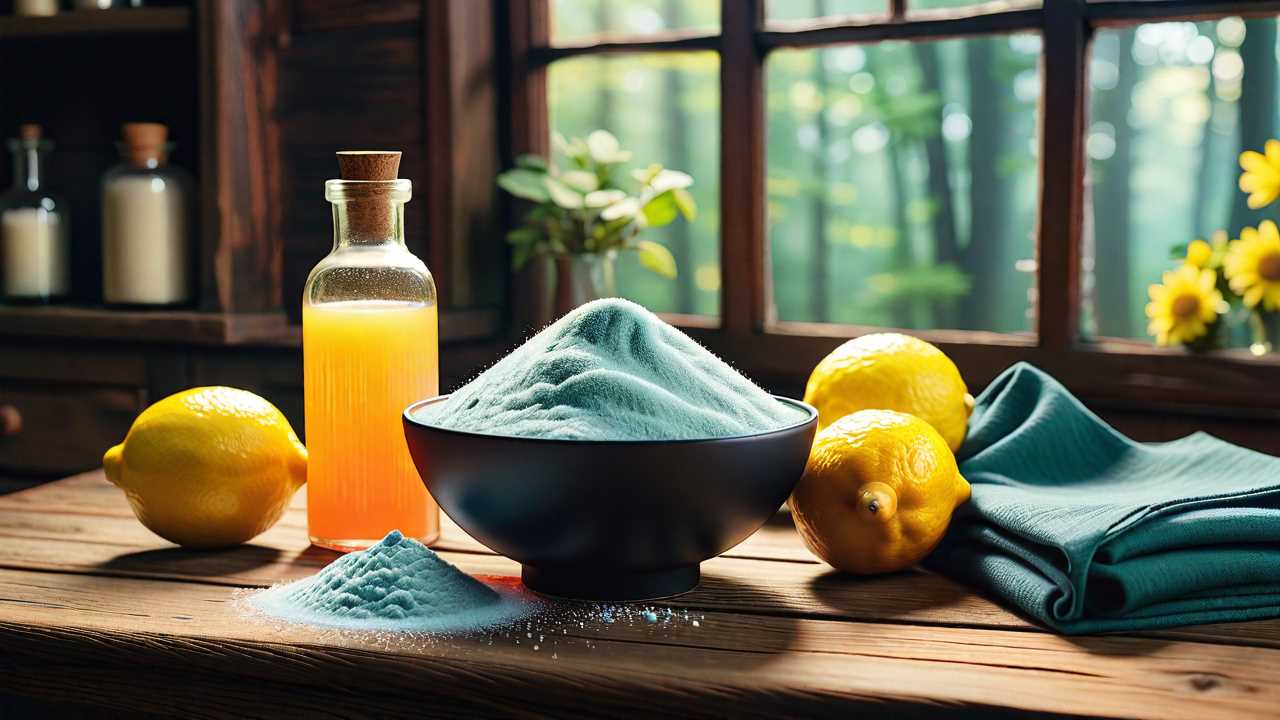
Imagine walking into your home and being greeted by a fresh, clean scent that puts your mind at ease. Curious about how you can achieve this without exposing yourself to harsh chemicals? Well, creating your own DIY natural cleaning products might be the solution you're looking for. By using simple ingredients, you can craft effective cleaners that are safe for your family and the environment. But how exactly can you get started on this journey to a cleaner, healthier home?
Benefits of DIY Cleaning Products
When you choose to make your own cleaning products at home, you can experience a range of benefits that include cost savings and reduced exposure to harmful chemicals. By creating DIY natural cleaning products, you have the opportunity to control exactly what goes into the solutions you use in your home. This means that you can avoid harsh chemicals commonly found in commercial cleaners that may cause skin irritations or respiratory issues.
Another advantage of DIY cleaning products is the cost-effectiveness they offer. Basic ingredients like vinegar, baking soda, and essential oils are often more affordable than purchasing specialized cleaning products repeatedly. Additionally, since these ingredients are versatile and have multiple uses, you can save money in the long run by incorporating them into various cleaning recipes.
Furthermore, creating your own cleaning products allows you to customize scents and strengths according to your preferences. You can experiment with different essential oils to create pleasant fragrances without artificial additives or overwhelming chemical smells.
Essential Ingredients for Natural Cleaners
To craft effective DIY natural cleaning products, you must first familiarize yourself with the essential ingredients commonly used in these eco-friendly solutions.
Vinegar is a staple ingredient known for its disinfectant properties. Its acidic nature helps break down grease and grime, making it ideal for various surfaces.
Baking soda is another versatile ingredient that acts as a gentle abrasive, deodorizer, and stain remover.
Essential oils like tea tree, lavender, or lemon not only provide a pleasant fragrance but also offer antibacterial and antifungal properties.
Castile soap, made from plant oils, is a gentle yet effective cleanser that can be used in various cleaning recipes.
Finally, hydrogen peroxide is a powerful disinfectant that can help sanitize surfaces effectively.
Easy-to-Make All-Purpose Cleaner Recipe
Crafting your own all-purpose cleaner at home is a simple and cost-effective way to maintain a clean and eco-friendly living space. Here is an easy-to-make recipe that will leave your surfaces sparkling and your conscience clear:
- Ingredients:
- White vinegar
- Water
- Essential oils (optional for fragrance)
- Spray bottle
- Funnel
To create your all-purpose cleaner, mix equal parts white vinegar and water in the spray bottle using the funnel. Add a few drops of your favorite essential oils if you desire a pleasant scent. Shake the bottle gently to combine the ingredients.
This DIY cleaner is perfect for wiping down countertops, cleaning glass surfaces, and freshening up various areas around your home. Remember to label your spray bottle accordingly and store it in a cool, dark place when not in use.
Enjoy the benefits of a natural, homemade cleaner that's safe for your family and the environment.
Tips for Storing and Using Homemade Cleaners
For effective storage and usage of homemade cleaners, consider the following tips. Store your homemade cleaners in a cool, dark place away from direct sunlight to maintain their effectiveness. Use airtight containers to guarantee evaporation and maintain the potency of the ingredients. Label each container with the name of the cleaner and the date it was made to track its freshness.
When using homemade cleaners, always test them on a small, inconspicuous area first to verify compatibility with the surface. Avoid mixing different homemade cleaners unless specified in a recipe, as this can lead to chemical reactions or reduced efficacy.
Remember to shake your homemade cleaners before each use to ensure the ingredients are well mixed. Use appropriate protective gear such as gloves and masks when handling homemade cleaners with strong ingredients like vinegar or essential oils.
Frequently Asked Questions
Can I Use Homemade Cleaners on All Surfaces?
Yes, you can use homemade cleaners on many surfaces, but be cautious. Test on a small, inconspicuous area first. Avoid using certain ingredients on sensitive surfaces like marble. When in doubt, consult a professional.
Are DIY Cleaners Safe for Pets?
Yes, DIY cleaners can be safe for pets if made with pet-friendly ingredients. For example, mixing water, vinegar, and a drop of essential oil can create a safe all-purpose cleaner. Always research ingredients before using.
How Long Do Homemade Cleaners Last?
Homemade cleaners typically last for about 1-2 months when stored properly in a cool, dark place. To maintain effectiveness, label containers with preparation dates and ingredients. Check for any signs of spoilage before each use.
Can Essential Oils Be Substituted in Recipes?
Yes, essential oils can be substituted in recipes. However, it is important to select oils with similar properties for effective cleaning. Lemon, tea tree, lavender, and peppermint are popular choices. Experiment cautiously to find the right scent and potency for your needs.
Will Natural Cleaners Disinfect as Effectively as Store-Bought?
Natural cleaners can be effective disinfectants when used correctly. Ingredients like vinegar, hydrogen peroxide, and essential oils have antimicrobial properties. Confirm proper ratios and application methods for effective disinfection in your homemade cleaning products.
 SportsHollywoodLifestyleFashionHome & GardenTrendsPrivacy PolicyTerms And Conditions
SportsHollywoodLifestyleFashionHome & GardenTrendsPrivacy PolicyTerms And Conditions
